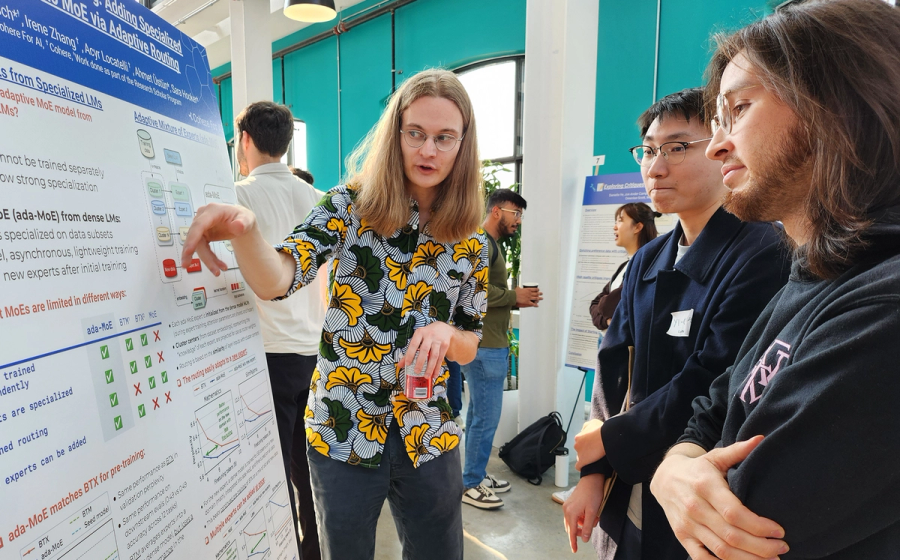Cohere Labs Scholars Program
Charting new paths into ML research
Cohere Labs' Scholars Program provides emerging researchers the resources to push the limits of AI.


Status:
Next deadline:
Applications open annually, typically around August.
Eligibility:
Early-career researcher
Full-time availability
Demonstrated AI/ML curiosity
Benefits:
Tailored mentorship from ML experts
Access to large-scale experimental settings to conduct research
Competitive pay
About the program
The Scholars Program is a remote-first, full-time paid position that begins annually in January and takes place for 8 months. Scholars get matched with mentors based on areas of research and are key contributors to the Cohere Labs team.


Mentorship
Tools
Access our large-scale experimental settings to conduct research exploring complex ML problems.
Ownership
Lead a matched project, applying your strengths to explore high-impact research questions.
The program experience
Alumni spotlight
Scholars' papers
- Language Modelsmultilingual
Jun 19, 2025
- multilingualLanguage Models
May 30, 2025
- Mixture of ExpertsScholars
Aug 29, 2024
- LanguageRobustness
Aug 28, 2024
- Reinforcement LearningGenerative Models
Feb 23, 2024
Where Scholars go next




















































































Frequently asked questions
- Applications open each year in August; the Scholars Program begins annually in January.
- No. In fact, we are particularly interested in identifying candidates with strong engineering skills and demonstrated creative thinking but limited experience or no experience with published papers. You need not have to have previous research experience to apply.
- We will consider the skills, interests, and background of our successful applicants alongside our research projects to make the best possible match between Scholar and project.
- Yes, this is a full-time, paid position.
- The Scholars Program will operate on a remote-first basis. We want to make this opportunity available to emerging ML researchers around the world. If you are based out of or visiting a city with a Cohere office you are welcome to come work with us in person.
- The Scholars Program is structured as a remote-first opportunity, with no requirement to relocate.
- The Scholars Program is structured as a rigorous full-time commitment. In an effort to keep up with the pace of advancement of ML research, we look forward to supporting Scholars dive into the research process as they work towards publication within the program period.
- Yes–we welcome re-applications for future cohorts. We see this as a positive signal of your continued interest and commitment to the program.